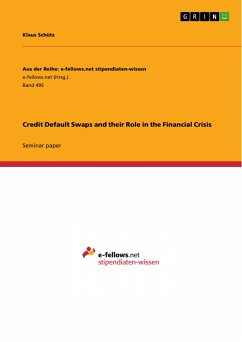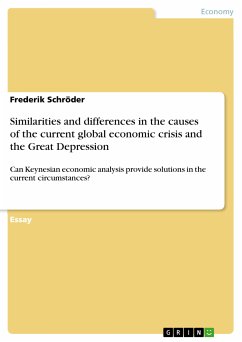Master's Thesis from the year 2010 in the subject Economics - Finance, grade: 5.0 (Schweiz), University of Zurich (Wirtschaftswissenschaften), language: English, abstract: The current developments in the credit or bond markets, influenced by the financial crisis and the economic downturn, revive a discussion about credit derivatives as an instrument of speculation and one cause or determinant of the financial crisis. Currently, CDS are used to speculate against the solvency of the different governments. Critics look at CDS contracts as Overthecounter (OTC) instruments that are not regulated and as bilateral contracts which can have a big influence on the financial position of market participants and on the real credit markets. CDS contracts are mainly instruments for investors to insure against a default of the debtor. For the seller of the CDS they are a possibility to participate in risks he perhaps could not have taken on the bond markets otherwise. These contracts separate the default risk of the debtor from the market conditions, e.g. the market interest rates. They make it possible to only trade the credit risk of a company or a country. Therefore, they can be instruments to proof the bond values and indicators for the real credit risk of the underlying. The discussion about CDS contracts is mostly a discussion including many prejudices and it deals with aspects from different topics which cannot be mixed. Therefore, a clear picture of advantages and disadvantages and especially values and risks of CDS is difficult to be found in the current public discussion and economic newspaper articles. A further phenomenon is that bond markets and CDS markets have lost their connection in the financial crisis. So the credit risk on both markets is valued differently: the prices on the two markets differed so much that market participants used these arbitrage possibilities to earn credit riskfree money for themselves and their customers It can be traded with a simple combination of the underlying bond and the fitting CDS contract. One of the causes of the basis can be the different liquidity level in the two separated markets. For the development of the basis during the crisis it is important to ask how big the changes are compared to the situation before the financial crisis and also how important the credit rating or the industry of the reference entity is.. The price difference, if the CDS price is lower than the credit risk priced by the bond of the same reference entity, is negative basiscalled









